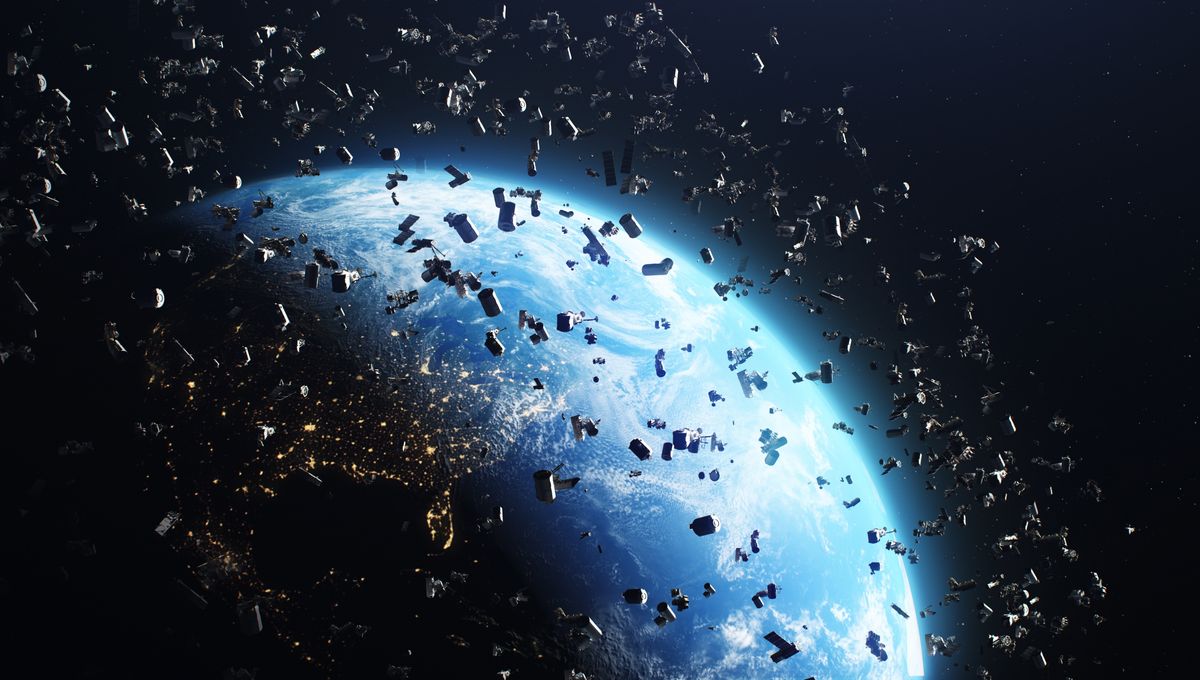
Space in Earth’s orbit is getting crowded. The number of satellites in orbit in 2018 was just over 2,000 – but the introduction of megaconstellations such as Starlink has increased the number massively. There are currently 9,000 satellites, and by the end of the decade, the number is expected to reach 60,000. That could become a massive problem.
For decades, scientists have been raising alarm bells about the problem of space junk. There are already 100 trillion untracked pieces of satellites circling the planet. They move faster than a bullet, and even a speck of paint can end up damaging stuff in orbit – that’s how the International Space Station got one of its windows chipped.
Scientists have called for a legally binding treaty to ensure that the space around Earth doesn’t become irreversibly harmed by space junk (more than it has already been). The inspiration is to copy the recently approved High Sea treaty, but before the harm is done.
“The issue of plastic pollution, and many of the other challenges facing our ocean, is now attracting global attention. However, there has been limited collaborative action and implementation has been slow,” lead author Dr Imogen Napper, research fellow at the University of Plymouth, said in a statement. “Now we are in a similar situation with the accumulation of space debris. Taking into consideration what we have learnt from the high seas, we can avoid making the same mistakes and work collectively to prevent a tragedy of the commons in space. Without a global agreement we could find ourselves on a similar path.”
The high seas have experienced overfishing, habitat destruction, deep-sea mining exploration, and plastic pollution. The treaty comes long after the harm is done, and this call about keeping orbits clean is urgent and inspired by that. In fact, the research team includes space scientists, industry leaders, as well as marine biologists and ocean experts.
“To tackle planetary problems, we need to bring together scientists from across disciplines to identify and accelerate solutions,” Heather Koldewey, Zoological Society of London’s senior marine technical advisor, explained. “As a marine biologist I never imagined writing a paper on space, but through this collaborative research identified so many parallels with the challenges of tackling environmental issues in the ocean. We just need to get better at the uptake of science into management and policy.”
Solutions to the current issues do exist, but they require the political will to hold countries and private enterprises to keep space a safe environment. Overpollution there would be to the detriment of all: Space junk can destroy satellites that we rely on in our daily life from communication to protection.
“Ancient TEK (traditional ecological knowledge) informs us how we must embrace stewardship because our lives depend on it. I’m excited to work with others in highlighting the links and interconnectedness amongst all things and that marine debris and space debris are both an anthropogenic detriment that is avoidable,” Dr Moriba Jah, associate professor of Aerospace Engineering and Engineering Mechanics at The University of Texas at Austin, added.
The study was published in the journal Science. If you are interested in the issue of space junk and possible solution, later this year we will be publishing an in-depth conversation with Dr Jah as part of our podcast The Big Questions.
Source Link: Earth's Orbit Must Be Protected From Space Junk, International Scientists Urge